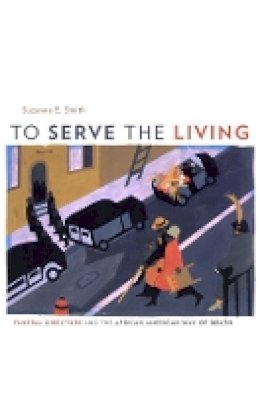16%OFF

Stock image for illustration purposes only - book cover, edition or condition may vary.
To Serve the Living: Funeral Directors and the African American Way of Death
Suzanne E. Smith
€ 47.99
€ 40.36
FREE Delivery in Ireland
Description for To Serve the Living: Funeral Directors and the African American Way of Death
Hardback. From antebellum slavery to the twenty-first century, African American funeral directors have orchestrated funerals or 'homegoing' ceremonies with dignity and pageantry. This title offers a history of how African American funeral directors have been integral to the fight for freedom. Num Pages: 288 pages, 12 halftones. BIC Classification: 1KBB; HBJK; HBLW; JFSL3; JHBZ; RNP. Category: (G) General (US: Trade). Dimension: 210 x 140 x 25. Weight in Grams: 458.
From antebellum slavery to the twenty-first century, African American funeral directors have orchestrated funerals or “homegoing” ceremonies with dignity and pageantry. As entrepreneurs in a largely segregated trade, they were among the few black individuals in any community who were economically independent and not beholden to the local white power structure. Most important, their financial freedom gave them the ability to support the struggle for civil rights and, indeed, to serve the living as well as bury the dead.
During the Jim Crow era, black funeral directors relied on racial segregation to secure their foothold in America’s capitalist marketplace. ... Read more
Product Details
Format
Hardback
Publication date
2010
Publisher
Harvard University Press United States
Number of pages
288
Condition
New
Number of Pages
288
Place of Publication
Cambridge, Mass., United States
ISBN
9780674036215
SKU
V9780674036215
Shipping Time
Usually ships in 7 to 11 working days
Ref
99-16
About Suzanne E. Smith
Suzanne E. Smith is Professor of History at George Mason University.
Reviews for To Serve the Living: Funeral Directors and the African American Way of Death
[Smith] has done a masterful job in her skillful and compelling narrative detailing the critical intersection of the histories of the African American funeral industry and the modern civil rights movement in the United States. Her attention to the contributions of a number of important figures and personalities (e.g., funeral-home owners, funeral directors and embalmers, civil rights leaders, and other ... Read more
